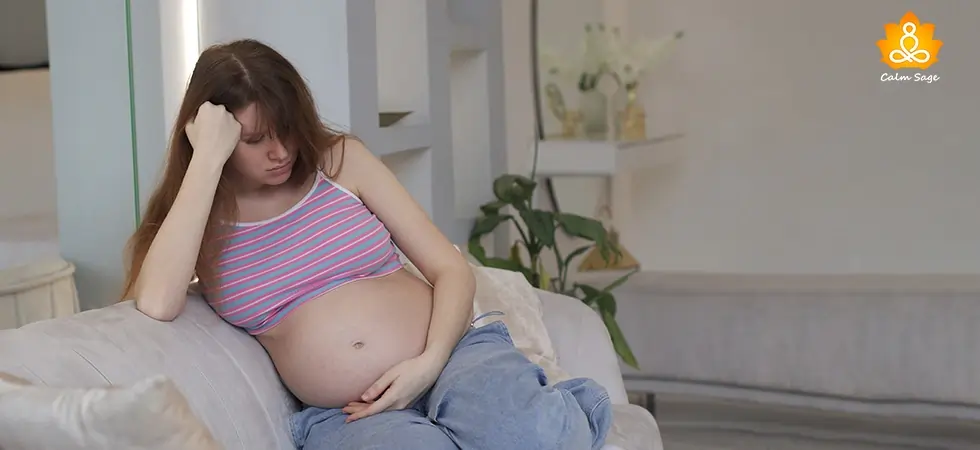Parents’ Guide To Identify Suicidal Thoughts In Children

We often think that our children are moving in the right direction. Sometimes, everything feels just right about our children but one thing that we as parents cannot identify is the suicidal thoughts in our children.
We often watch, read, or hear stories related to suicidal thoughts in children or children who died through suicide. Most parents replied that they had no idea about their thoughts, emotions, behavioral problems, or mental health issues. They never felt any red flags that anything was wrong with their children.
While there is a stigma around the presence of mental health issues in children, it’s a fact that around 3% of children experience suicidal thoughts. Therefore, it is really important to identify suicidal thoughts in our children before they can become worse. Suicidal rates are increasing every day and the problem is that many parents or caregivers are not well informed on the signs, causes, and how to provide the proper support to children with suicidal thoughts.
This blog covers how we can identify suicidal thoughts in children and how to give the right support to children having suicidal ideation.
Reasons behind suicidal thoughts in children
I tried my best to find the causes behind a child’s or teen’s suicide, I could find a relationship between devastating mental health. However, the fact is that any specific mental health condition cannot be the cause of someone having suicidal thoughts. Some behaviors or obsessions with death are highly linked to the causes of suicidal thoughts.
Suicidal thoughts are not easy to identify, especially in children. The reason behind this is that children cannot express or speak about their problems directly as adults. Additionally, suicidal thoughts in children are sometimes developed due to an interest in an obsession with death or suicide.
You can identify such symptoms by their clothing styles, the content they watch on their phone or television, websites they often visit, or journals they usually maintain.
Ways to identify suicidal thoughts in Children
One of the most effective ways to spot suicidal thoughts is to pay attention to their speaking style or certain behaviors especially when a child directly speaks about anything related to suicidal thoughts. Some children indirectly tell you about their thinking patterns or their feelings.
There are few symptoms or signs that can be used to recognize suicidal thoughts in children especially when they are socially withdrawn or have an introverted personality. Additionally, if your child is prone to depression, it might be possible that he/she is having suicidal thoughts as well.
Here are some common warning signs of suicidal thoughts in children:
- Hostile or aggressive behavior
- Restlessness
- Anxiety
- Changes in personality
- Social withdrawal
- Hopelessness
- Worthlessness
- Signs of self-harm
- Neglecting personal appearance
- Risk-taking behavior
- Changes in sleep, energy, or appetite
Here are some suicidal thoughts in children that call for immediate psychiatric consultancy:
- Wishing goodbye
- Giving away belongings
- Purchasing or having dangerous weapons
- Stashing dangerous pills
- Making a suicidal plan
- Watching movies that include suicidal
- Showing calmness after expressing thoughts or emotions
- Making declarative statements
- Social isolation
- Involved in suicidal activities
During such emergency cases, you must immediately connect with a mental health professional or physician nearby to seek the right help and support. Additionally, you can take the help of the resources mentioned below:
National Suicide Prevention Lifeline
For support and assistance from a trained mental health advisor, call 988. For emergencies situations, call 911
Steps to take when your child is having Suicidal thoughts
If you are noticing or suddenly noticed a few or all of the above-mentioned warning signs in children, you must get in touch with a professional. Such signs can also be related to some other mental health issues therefore, it is important to get in touch and get diagnosed as soon as possible.
A professional mental health advisor will help you in identifying subtle cues of depression or suicidal thoughts in your children by conducting psychological tests.
Additionally, therapeutic treatment is really important for such mental health issues because it helps them in decreasing their warning signs, and additionally, they help in building a personality as well. It is also important to take recommended medications as they will help in reducing suicidal thoughts.
To connect with a mental health professional or to learn more about your children’s suicidal behaviors, click below:

Great for a large network of licensed therapists
-
$60 to $90/week, billed every 4 weeks
-
Therapy via messaging, phone, or live video chat
-
Flexible cancellation at any time
20% off your first month

Great for CBT Based therapists
-
$40/week, billed every 4 weeks
-
Therapy via messaging, phone, or live video chat
-
Specialization for CBT based Therapy
20% off your first month

Best for Treatment Plants
-
$60 to $90/week, billed every 4 weeks
-
Therapy via messaging, phone, or live video chat
-
Flexible cancellation at any time
$100 off your first month with code SPACE
Talking about self-help, you can always talk to your children, learn about their emotions, and get involved in close monitoring so that you can help them in a speedy recovery.
Tips to provide the right support to a child who’s having suicidal thoughts
Apart from seeking therapy, you can also help your child by communicating with them. Suggesting them to do the right thing, and having an honest and open discussion will help them in getting the right support. With the help of the below-mentioned effective tops, you can confidently talk with your children about their suicidal thoughts or any ongoing mental health issue:
- While being open toward conversation, ensure you have age-appropriate conversations and do not confuse them.
- Don’t use words that are complex or hard to understand like emotional reaction, suicide, depression, and more.
- Don’t compare your children’s feelings with others’ feelings.
- While having a conversation about their feelings, it is important to conclude the conversation in the right and positive direction.
- By balancing the positive outlook, you can motivate your child towards positive thinking.
- Respect their feelings.
- Try to understand and process their thoughts.
- Avoid comments that might hurt them.
- Don’t make fake promises.
- Educate them so that they can have deep knowledge.
- Be open when your child expresses their emotions, thoughts, and opinions.
- Do not judge or punish them.
Takeaway from The Author
As a parent or caretaker, we often forget to focus on our children’s emotional needs. In order to fill this emotional gap, you can directly ask your children about their feelings related to suicide. Indirectly, always teach them that taking life is never an option and if there’s a problem, they can come directly to you.
Parental support during this phase is an important factor as listening to the needs of children or comforting them can be associated with less risk of suicidal thoughts in adolescents and teenagers. Never provide a judgment directly, instead try to comfort your children by removing them from danger, never leave them alone, and encourage them to connect with the therapist.
Suicidal thoughts in children should be taken seriously and you must always get in touch with a professional before concluding anything on your own. We all must encourage ourchildren to seek therapy so that they can move in the right direction.
I hope this blog helps you with identifying suicidal thoughts in children. You can also share your thoughts by leaving a comment below. For more such content, connect with us on all social media platforms.
Thanks for reading!




















